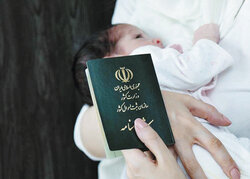UNHCR welcomes Iran’s new child citizenship law

TEHRAN – The United Nations High Commissioner for Refugees has welcomed a recently declared law on conferring Iranian citizenship on children born to Iranian women and non-Iranian men regardless of where they are born.
The law was approved by the Iranian Parliament (Majlis) and submitted to the Government for implementation on October 8, allowing Iranian women to pass their nationality to their children.
Worldwide, statelessness affects millions of people, leaving them without the basic rights and official recognition that most of us take for granted. Some 3.9 million stateless people appear in the reporting of 78 countries, but UNHCR believes the true total to be significantly higher.According to the law, children of Iranian women and non-Iranian men who were born before or after the law can be an Iranian citizen in case the Iranian mother requested if they have no security problem before the age of 18.
These children, after reaching the age of 18, can apply for Iranian citizenship if not requested by the mother, then will be granted Iranian citizenship in case of no security problem.
Through a series of resolutions beginning in 1995, the UN General Assembly gave UNHCR the formal mandate to identify stateless people, prevent and reduce statelessness around the world, as well as to protect the rights of stateless people.
At the 14th World Summit of Nobel Peace Laureates, Nobel Peace Laureates and Peace Laureate Organizations demonstrated their support for UNHCR’s global campaign called #IBelong launched in November 2014 to end statelessness within ten years.
By now, UNHCR is in the middle of its 10-year campaign to eradicate statelessness; a high level will be held as part of UNHCR 2019 Executive Committee meeting in Geneva in October, which will assess the achievements to date and to encourage concrete pledges by member states and others on this issue.
Worldwide, statelessness affects millions of people, leaving them without the basic rights and official recognition that most of us take for granted. Some 3.9 million stateless people appear in the reporting of 78 countries, but UNHCR believes the true total to be significantly higher.
FB/MG
Leave a Comment